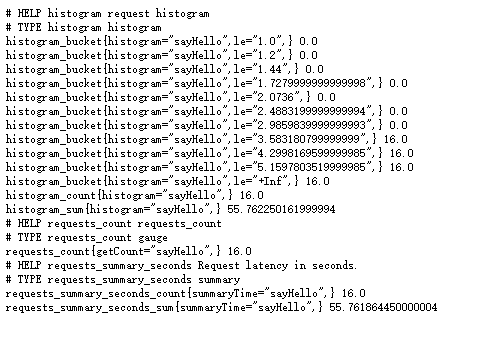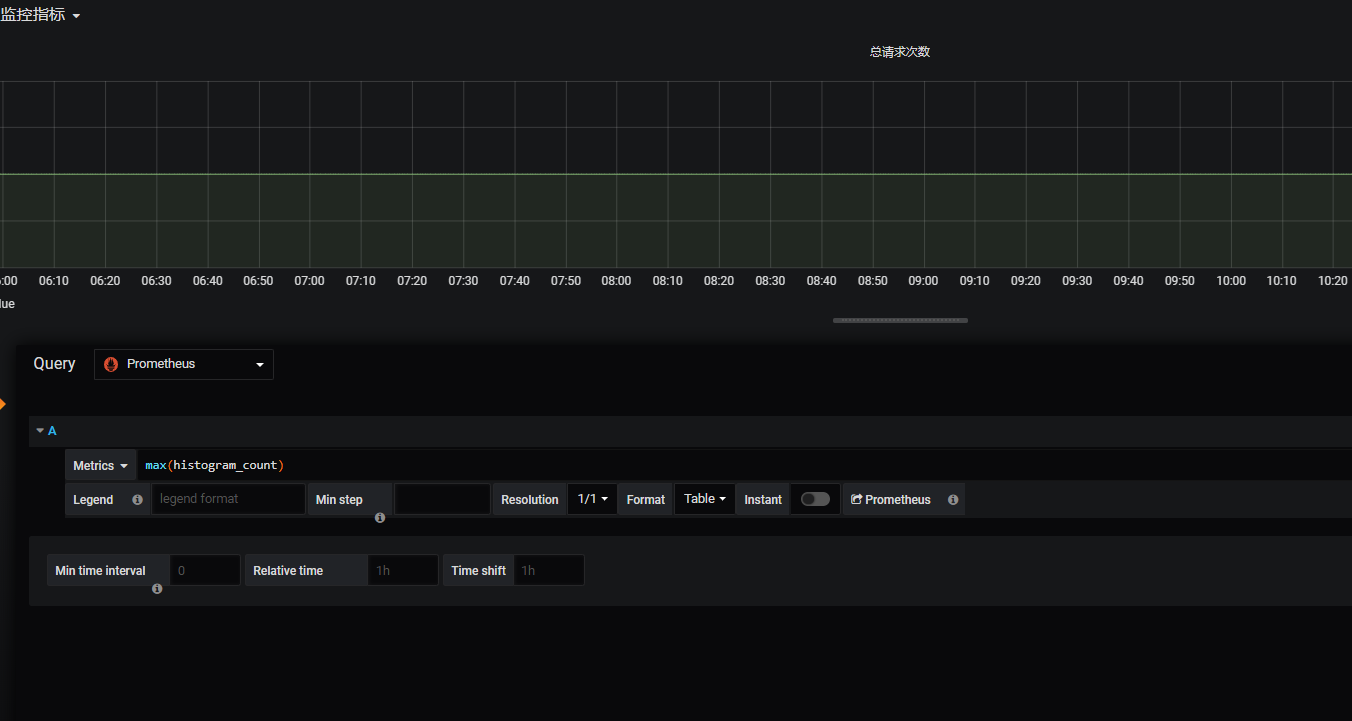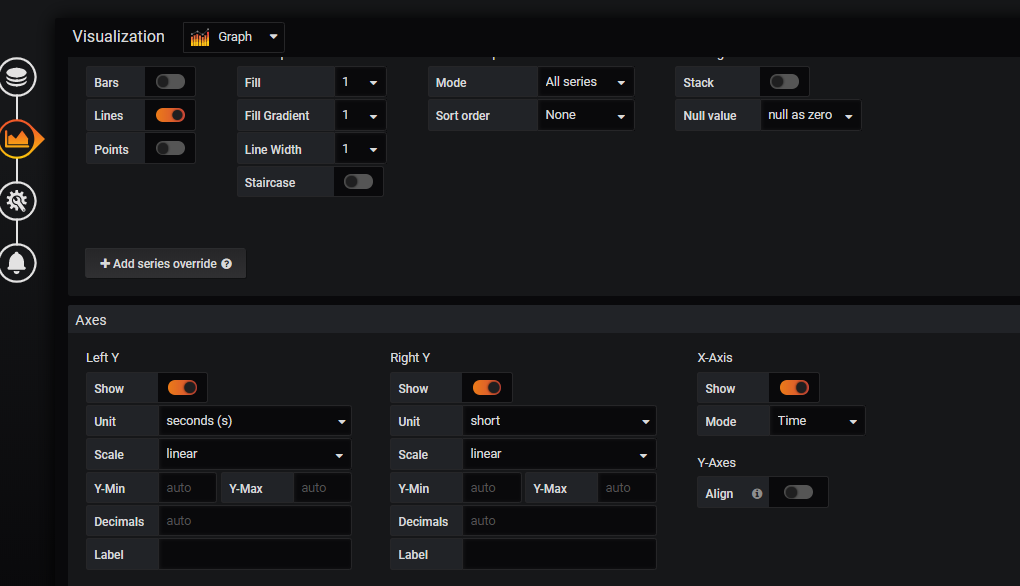prometheus使用三(自定义监控指标实现)
prometheus提供了一系列的export帮助采集各种容器和中间件的运行指标,但有时我们还需要更灵活的监控指标,介绍一下自定义监控指标
本文用来监控dubbo的服务提供者的被调用指标,包括调用次数,p99等。
首先引入jar包
<dependency> <groupId>io.prometheus</groupId> <artifactId>simpleclient_httpserver</artifactId> <version>0.6.0</version> </dependency> <dependency> <groupId>io.prometheus</groupId> <artifactId>simpleclient_pushgateway</artifactId> <version>0.7.0</version> </dependency>
写一个util工具类,里面有四大基本统计类型的用法
import io.prometheus.client.Gauge; import io.prometheus.client.Histogram; import io.prometheus.client.Summary; import org.springframework.stereotype.Component; @Component public class PrometheusUtil { static final Gauge gauge = Gauge.build() .name("requests_count") .labelNames("getCount") //key .help("requests_count").register(); //累加的count值 //用法: 代码前加入 gauge.labels("get").inc(); //+1 get,value // gauge.labels("get").dec(); //-1 Summary receivedBytes = Summary.build() .name("requests_size_bytes") .labelNames("summaryBytes") .help("Request size in bytes.").register(); //http请求的字节数 //用法: 方法后执行 receivedBytes.observe(req.size()); static final Summary summaryTime = Summary.build() .name("requests_summary_seconds") .labelNames("summaryTime") .help("Request latency in seconds.").register(); //请求处理的时间 static final Histogram hisTimer= Histogram.build() .name("histogram") .labelNames("histogram") .help("request histogram") .exponentialBuckets(1,1.2,10).register(); //处理p99 //count+ public static void inc(String lable){ gauge.labels(lable).inc(); } //请求处理时间开始 public static Summary.Timer summaryTimeStart(String lable){ Summary.Timer timer= summaryTime.labels(lable).startTimer(); return timer; } //请求处理时间结束 public static void summaryStop(Summary.Timer timer){ timer.observeDuration(); } //p99开始 public static Histogram.Timer histogramStart(String lable){ Histogram.Timer timer=hisTimer.labels(lable).startTimer(); return timer; } //p99结束 public static void histogramStop(Histogram.Timer timer){ timer.observeDuration(); } } 然后在dubbo服务提供者启动类里开个端口,用来让prometheus访问 public class Provider { public static void main(String[] args) throws Exception { ClassPathXmlApplicationContext context = new ClassPathXmlApplicationContext("/provider.xml"); //模拟调用dubbo service,方便调试,实际使用中不需要 DemoServiceImpl service = context.getBean(DemoServiceImpl.class); for (int i=0;i<5;i++){ String sayHello = service.sayHello("prometheus"); System.out.println(sayHello); } HTTPServer server=new HTTPServer(8080); context.start(); System.in.read(); } }
service层如下
@Component public class DemoServiceImpl implements Service{ @Override public String sayHello(String name) throws InterruptedException, IOException { PrometheusUtil.inc("sayHello"); Histogram.Timer timer = PrometheusUtil.histogramStart("sayHello"); Summary.Timer timer1 = PrometheusUtil.summaryTimeStart("sayHello"); try{ Random random = new Random(1); Thread.sleep(500 + random.nextInt(3000)); }catch (Exception e){ System.out.println(e.getMessage()); }finally { PrometheusUtil.histogramStop(timer); PrometheusUtil.summaryStop(timer1); } return "Hello " + name; } }
然后在prometheus的prometheus.yml上配置一个job,参数prometheus二中方法配置即可。
然后启动dubbo,再看prometheus的targets有没有监控到

已是up状态,有监控到,点击打开查看指标

跟预期一样,有指标,然后展示在grafana
自定义一个仪表盘,新建一个panel

写好表达式即可展示。同理写出其它几个指标,主要表达式为
平均响应时间 rate(histogram_sum[5m])/rate(histogram_count[5m])
平均qps increase(histogram_count[5m])/300
p90或p99 histogram_quantile(0.9, sum(rate(histogram_bucket[5m])) by (le)) 等等
或微调这些项得到最理想的展示

还有其它很多用法,欢迎大家告知。



